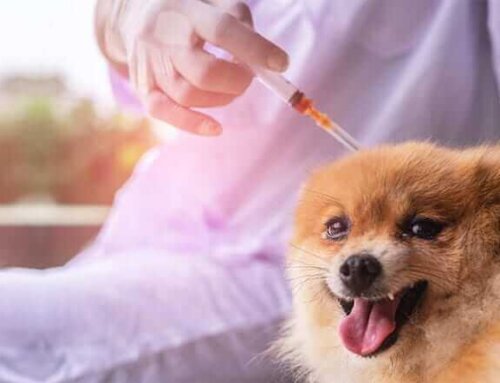Microchipping pets has been around for about 20 years. A microchip is about the size of a large grain of rice. It is inserted under the skin over the shoulder area and will stay in the pet for the pet’s life.
These days a pet is unlikely to leave a shelter without having a microchip implanted. The duty of the pet owner is to register the microchip to the owner’s name and update that information whenever the owner changes address or phone number.
Microchips are encased in a capsule that prevents the pet from reacting to the chip. Each chip is encoded with a unique number. A microchip has neither battery nor power source. Instead, a scanner (reader) energizes the microchip to send its signal back to the scanner and the unique number comes up on the scanner’s screen. If the scanner is set to the same frequency as the microchip, the microchip number is revealed. There are numerous companies that manufacture microchips. Unfortunately, over the years the European microchips have settled on a different radio frequency as those used in the United States. Many veterinary clinics will carry several scanners just in case.
If Hurricane Katrina taught us anything as veterinarians and pet owners, it was to microchip your pet. My pets are my family. Over the years I’ve experienced the fright of my dog or cat briefly getting out of the fenced yard. There is little that scares me more than one of my pets being lost in the world of traffic. One of the first things I do when I adopt a pet is to insert a microchip. If the pet is young, I often insert the microchip when the pet is under anesthesia for the spay or neuter. If the pet is a rescue and we anticipate a dental or surgery in the near future, I will implant the microchip when the pet is anesthetized. It is a decent sized needle, so I prefer to insert it when a pet is unaware. If no anesthesia is anticipated in the near future, I will microchip the pet awake but have the veterinary technician give the pet a big hug and have the owner distract the pet with a treat. I went through a phase a few years ago where I gave an injection of a local anesthetic before placing a microchip in awake pets, but honestly it seemed that the insertion of the microchip without a local wasn’t any more bothersome to the pet than the injection of the local anesthetic.
Think back. Since you adopted your pet, have you moved? Have you gotten a new cell phone number or email address? Did you contact the company to update your information? Should you add a significant other’s contact information to your pet’s account? If so, find your pet’s file and call the company to update your information. If you can’t find the information in your pet’s file nor the tag they gave you for the collar, take your pet to your veterinarian to scan your pet’s chip. Or, your vet may already have that information in your pet’s file at the veterinary clinic.
It only takes a few minutes to make sure your pet’s account information is current. Below are some phone numbers and tips in case you have misplaced your microchip information.
Micro-chipping Companies
- 24PetWatch (866-597-2424) – These chips are either 10 digit alpha numeric codes or 15 digits beginning with 982.
- AKC (800-252-7894) – AKC chips read: TR___-___-___ (10 digit alpha numeric code)
- AVID (800-336-2843) – Avid Chips read: AVID*___*___*___ (9 digits after AVID)
- AVID Euro (800-336-2843) – These are 10 digit alpha numeric codes.
- Banfield (877-567-8738) – Banfield chips are either 10 digit alpha numeric codes beginning with ODOD or 15 digit numeric codes beginning with 98101.
- Bayer ResQ (877-738-5465) – These are 15 digit numeric codes beginning with 981.
- Home Again (800-252-7894 or 888-466-3242) – Home again chips are either 10 digit alpha numeric codes or 15 digits beginning with 985.
NOTE: Consult your Veterinarian first to make sure my recommendations fit your special health needs.












Leave A Comment